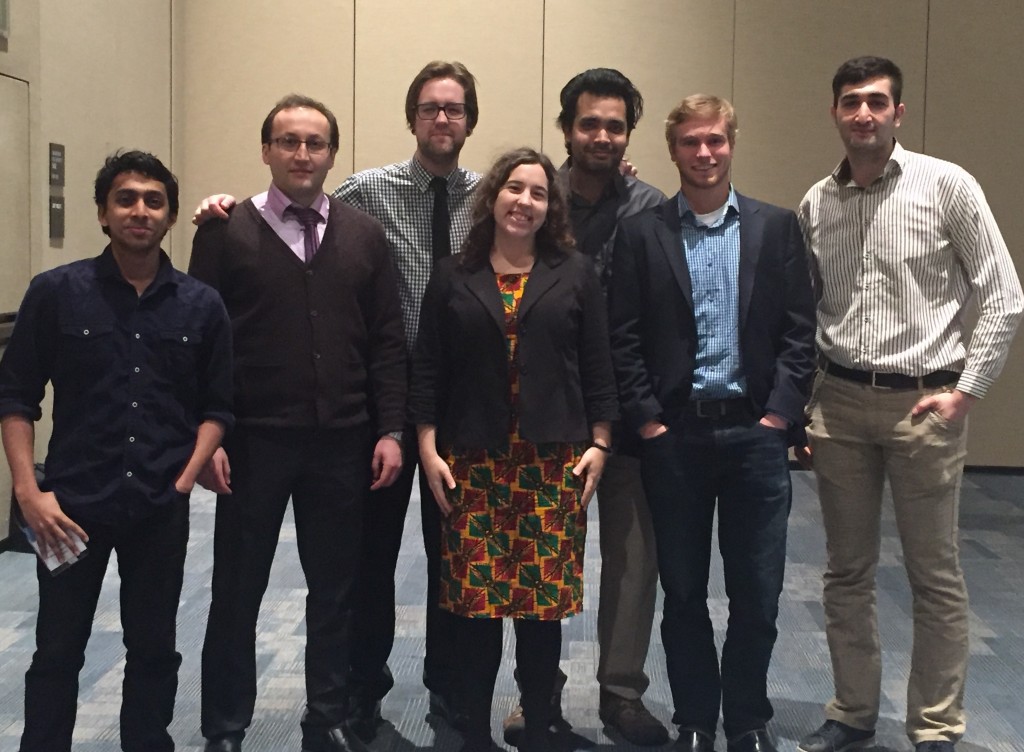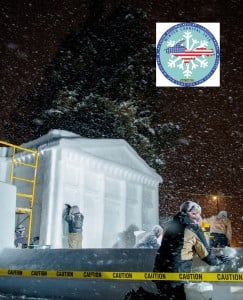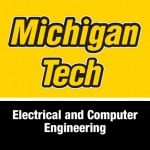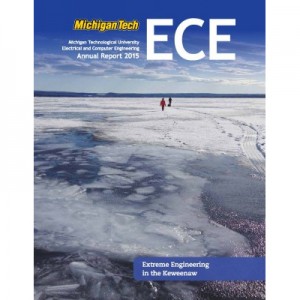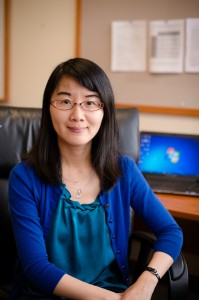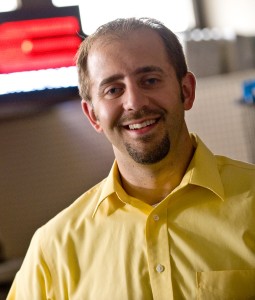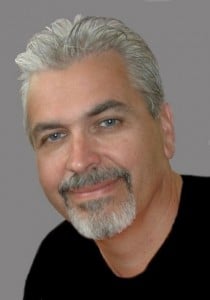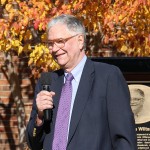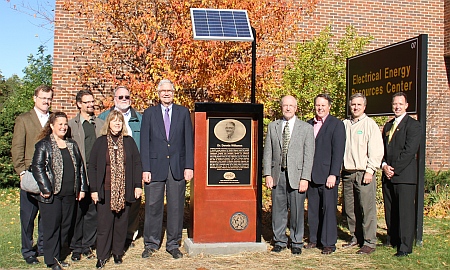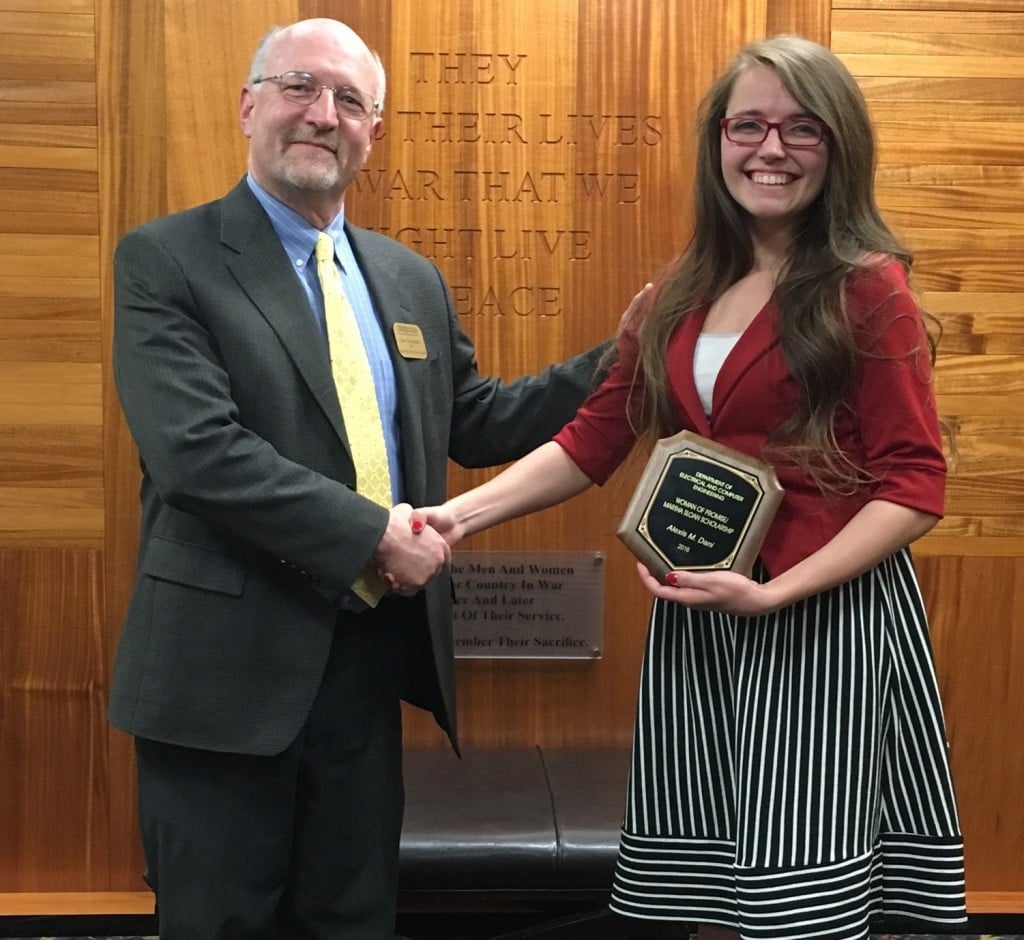
Happy Tax Day everyone! Actually the real Tax Day this year isn’t until Monday, and that’s a good thing considering how busy things have been in the ECE Department this week. Here’s a little factoid I just learned this week: April 15 is the birthday of Swiss mathematician, physicist, and astronomer Leonhard Euler (1707). Everyone knows Euler’s Formula, right?
This is the time when all our seniors are wrapping up their Senior Design and Enterprise projects, and we have a lot of visitors in town to see what we are doing and to help us out with the evaluation of the projects.
The ECE External Advisory Committee, or EAC, is here for the Spring 2016 meeting. This is a group of about a dozen industry representatives, most of them Tech alumni, who visit us twice a year to help us in our quest for continuous improvement. A lot of their time in the spring meeting is devoted to judging Senior Design and Enterprise projects, which happened yesterday (Thursday April 14). We had a total of 24 projects this year, and each project team is required to present their results and field questions in a 45-minute session. All of the ECE faculty and the graduate student TAs also participated in the judging. This is a great day in the life of the ECE Department, when we get to see all the hard work of the students over four years brought to fruition. My thanks to everyone, especially the EAC, that helped make the day a success.
We concluded the day with the Senior Awards Banquet at the Memorial Union Ballroom. Here we recognize both individuals and teams for their outstanding contributions to the ECE Department.
The individual student award winners are:
ECE Woman of Promise / Martha Sloan Scholarship: Alexis Dani (pictured above)
ECE Departmental Scholar: Derek Gheller
Carl S. Schjonberg Outstanding Senior: Ian Cummings
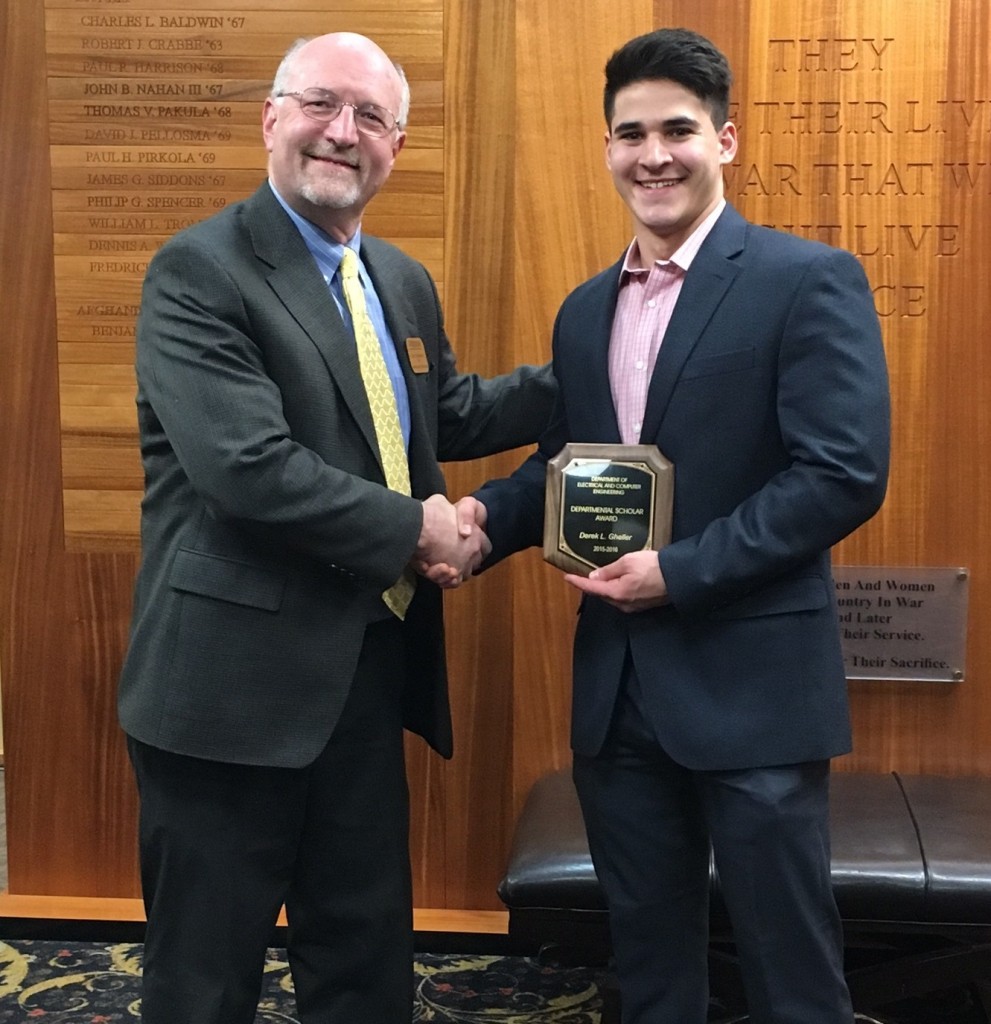
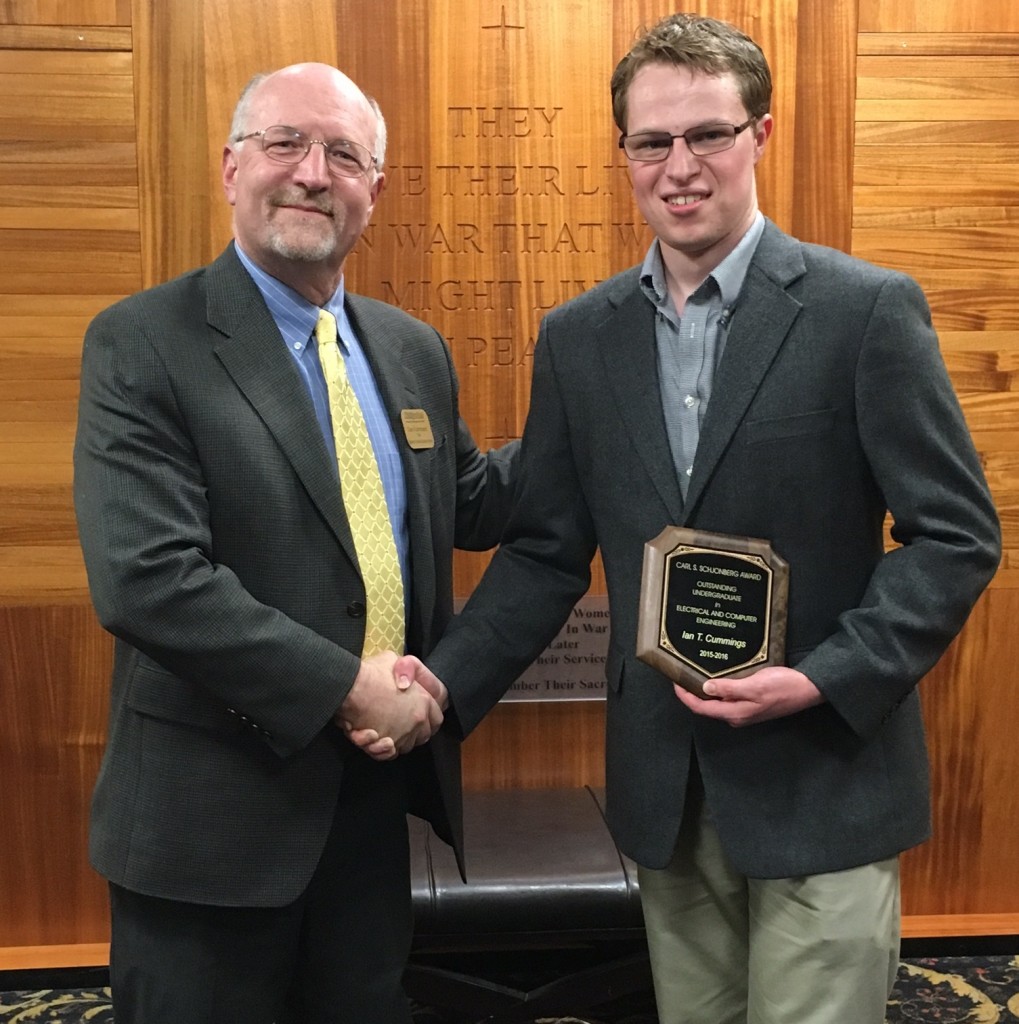
The Larry Kennedy Industry Innovation Award, the award given by the EAC to the top design project in the department, went to Senior Design Team 8, Traveling Wave Fault Location, sponsored by American Transmission Company (ATC) with faculty advisor John Lukowski.
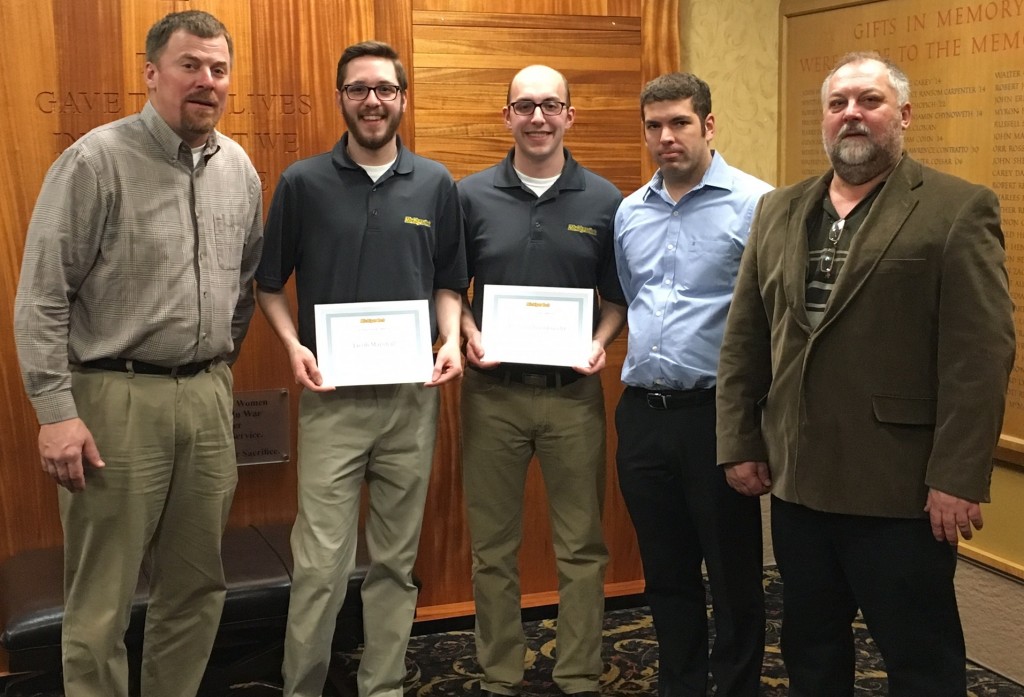
Finally, the Eta Kappa Nu (HKN) Professor of the Year award was given to Senior Lecture Kit Cischke. Kit teaches many of the core courses in our computer engineering program, and is the faculty advisor for the Wireless Communications Enterprise. He does a fabulous job and all the students love him. Congratulations Kit, and thanks for all you do!
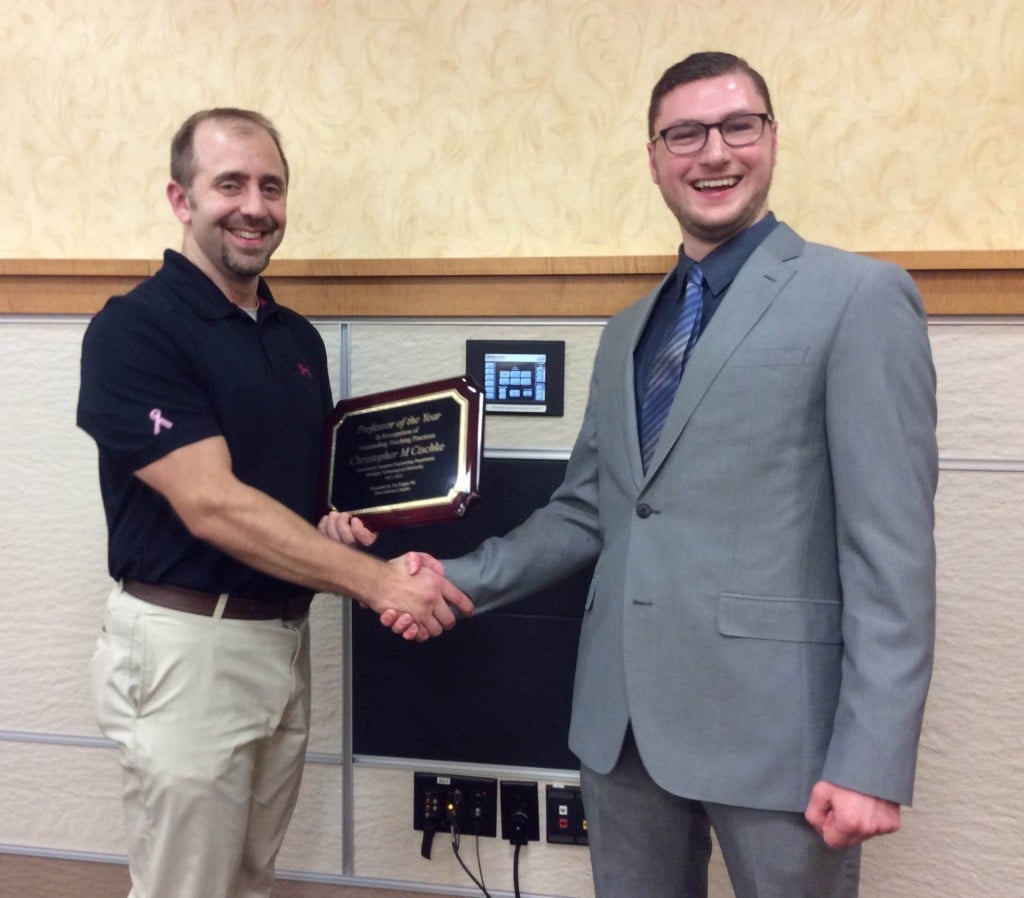
Earlier in the week we had a visit from another “unofficial” advisory group – a group of 5 industry leaders and entrepreneurs from Silicon Valley, led by Brocade CEO Dave House. Dave has been a very good friend of the ECE Department for many years, and in fact you may recognize his name from the professorship that I hold. Dave and company were here to advise and encourage the entire university, not just the ECE Department, on matters of innovation, entrepreneurship, and where technology is headed from their point of view. Dave has been very influential on my thinking about the importance of building closer ties among the ECE Department, the Department of Computer Science, and the School of Technology. On Tuesday I was very pleased to be able to report to the group that the performance results in the new Institute of Computing and Cybersystems, measured in new research awards, research expenditures, publications, and student support, was much higher than expected. The ICC is the most significant effort arising from the joint activity of the three units mentioned above, and so it is gratifying to see things coming together as they are.
On top of all that, we had some fantastic news from the ECE faculty this week. Assistant Professors Durdu Guney, Timothy Havens, and Chee-Wooi Ten have all been recommended by the Provost for promotion to the rank of Associate Professor, with tenure. The final vote will be taken at a meeting of the Board of Trustees in two weeks’ time. My congratulations to Durdu, Tim, and Chee-Wooi on reaching this major milestone – we expect many great things from them in the years to come.
All for now. Get those taxes in!
– Dan
Daniel R. Fuhrmann
Dave House Professor and Chair
Department of Electrical and Computer Engineering
Michigan Technological University
